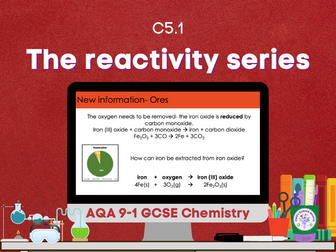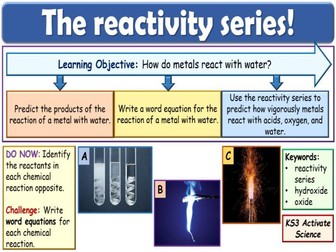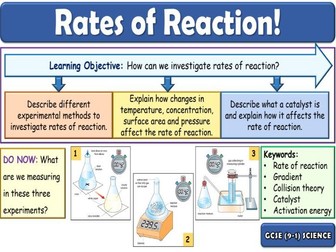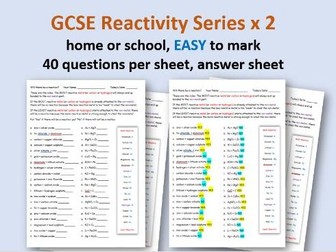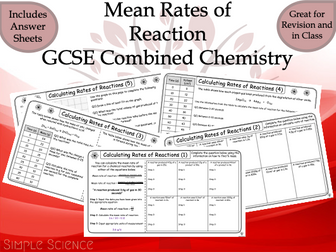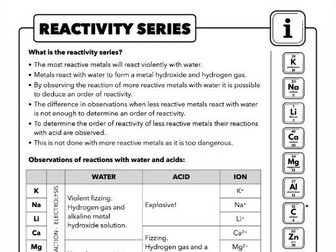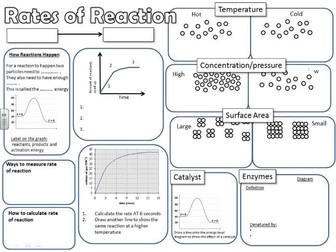
The reactivity series
During this lesson (C5.1 The reactivity series) GCSE students work through a variety of tasks to develop their understanding of the order of reactivity of metals based on experimental results. Based on the 1st from the AQA 9-1 GCSE Chemistry (OUP scheme) C5: Chemical changes chapter.
Also available as a digital worksheet, which is ideal for distance learning, independent study or catch-up of missed work through absence.
Presentation contains (22 slides)-
Bell work activity
Lesson objective and success criteria
Information slides
Challenge activities (group work)
Practical activity (where appropriate)
Demonstrate understanding tasks (with answers)
Lesson resources (additional to scheme)
Aimed at a mixed ability class covering content 1-8.
Please note: Kerboodle worksheets from scheme are not included due to license.
If you require more assistance, please contact me at-
cmgeducationresources@gmail.com
